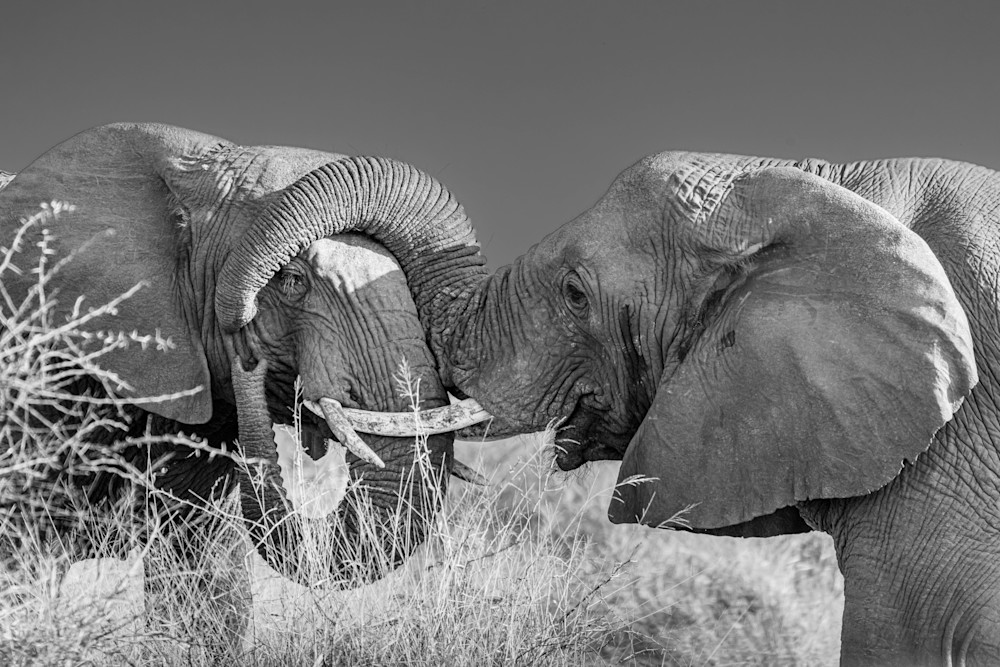The bond between mother and offspring in the animal kingdom, particularly among elephants, is profound and heartwarming. Elephants are known for their strong family ties and emotional connections. When a mother elephant expresses love and affection toward her daughter, one of the endearing gestures is the act of locking trunks.
Imagine a serene scene on the African savannah or in the lush forests of Asia. A wise and majestic mother elephant, with large, gentle eyes and impressive tusks, stands beside her younger counterpart — her beloved daughter. The mother elephant extends her trunk toward her offspring, and the younger elephant reciprocates in kind.
Their trunks entwine and interlock, forming a symbolic and tangible connection. This gesture serves as a means of communication, reassurance, and, most importantly, an expression of love. The tactile nature of the trunk-locking reinforces the emotional bonds between the two elephants.
The mother, with a demeanor that radiates wisdom and tenderness, imparts life lessons to her daughter through this physical connection. The intertwining trunks convey a sense of security, trust, and an unspoken language that transcends words. It's a moment of pure, unadulterated affection, where the mother imparts not just protection but a sense of belonging and familial unity.
As they stand there, the rustling of leaves or the distant sounds of other wildlife serve as a backdrop to this touching display of maternal love. The daughter, with an expression of trust and adoration, looks up to her mother, finding solace in the embrace of their linked trunks.
In the natural world, these gestures are a testament to the emotional richness of elephant societies. Mother elephants play a crucial role in the upbringing of their offspring, and the locking of trunks is a beautiful manifestation of the deep emotional bonds that characterize elephant families. It's a reminder that love and connection are not unique to humans but are woven into the fabric of life across different species on our planet.
















